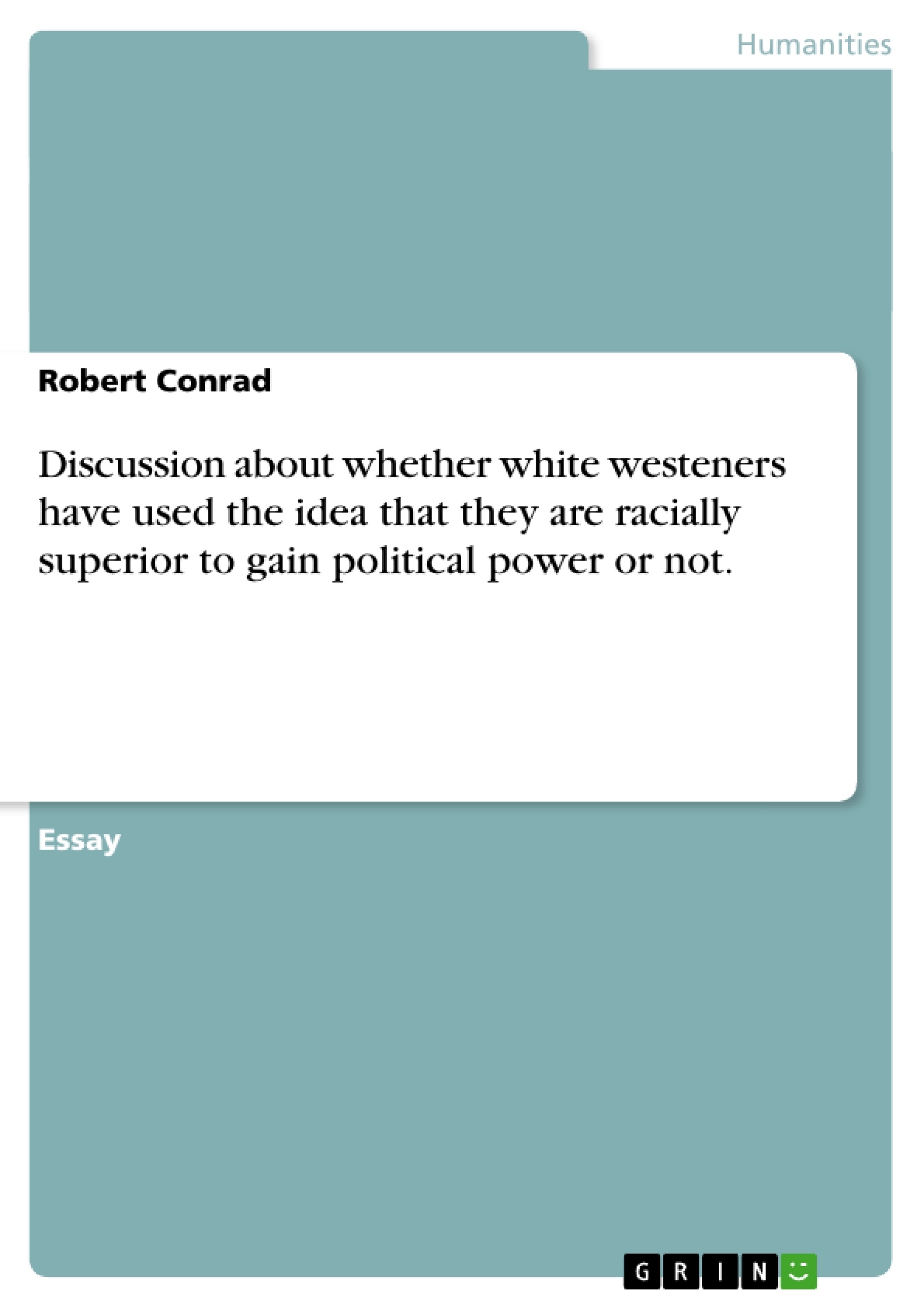In this section we will discuss whether white westerners have used the idea that they are racially superior to gain political power or not.
We will mainly approach from two directions therefore. One is that white westerners used the idea of their superiority to justify the exploitation of labour force and resources. The other is that they used the idea to achieve political power.
We must first define the main terms of this essay, which are `race′, `racial superiority′ and later on `political power′. We go on by taking a brief look at colonialism and how the ideas about race and racial superiority were practised. We then try to link these outcomes to recent history (Germany′s 1930s, USA′s 1970s, France′s 1980s), economics (neo-colonialism) and finally end by regarding the theories (authoritarian personality theory, conflict theory of prejudice, scapegoat theory and cultural theory of prejudice) that explain some of the racial and ethnical prejudices.
[...]
Discussion about whether white westeners have used the idea that they are racially superior to gain political power or not.

Essay , 2001 , 9 Pages , Grade: 14 of 20 (B)
Autor:in: Robert Conrad (Author)
Sociology - Politics, Majorities, Minorities
Excerpt & Details Look inside the ebook

